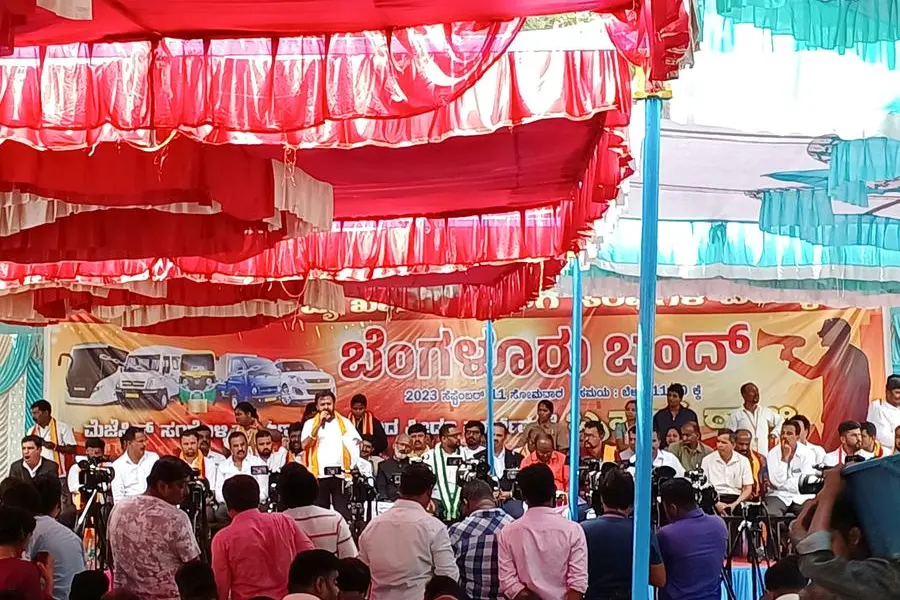PHOTO
Police detained protesters on Tuesday in India's tech hub of Bengaluru after one tried to commit suicide and another was injured while demonstrating against the sharing of water from a river that flows through two states, media and officials said.
Farmers' groups called the protest, which forced employees of multinationals such as Walmart and Alphabet's Google to work from home.
At one protest site called Freedom Park, a demonstrator tried to commit suicide while another farmer was injured, a domestic news channel said, with police detaining others.
Earlier, a senior police officer, K. Santosh Babu, said emergency orders had been imposed.
Schools and colleges were shut in the capital of the southern state of Karnataka, home to more than 3,500 tech companies.
Some farmers vowed to keep up the protests and widen them across the state this week, however.
"I can shed my blood but I don't want to give water to Tamil Nadu," said one protester, Ravi Mallikarjuna.
Farmers and politicians from Karnataka and the adjoining state of Tamil Nadu have been locked for decades in a legal dispute over sharing the waters of the Cauvery river.
The Supreme Court recently ordered the release of water by Karnataka to Tamil Nadu for 15 days from Sept. 13, but state officials said they could not comply as they had to first fill the needs of households and farmers in the state.
The deputy chief minister, D.K. Shivakumar, said Karnataka would struggle to release anywhere near the volume of water sought by Tamil Nadu, or 12,500 cusecs (354,000 litres).
"We are in a situation where we cannot even release 5,000 cusecs daily (142,000 litres)," he added.
The delay provoked small demonstrations near a railway station in Tamil Nadu.
The Cauvery river originates in the Karnataka region of Talakaveri, flowing through Tamil Nadu into the Bay of Bengal.
Some environmentalists have called for an audit of the river to help end the dispute, amid water scarcity in both states brought by changing patterns of rainfall.
"The judiciary should have asked for a fresh audit of the river instead of dictating terms to the Karnataka government," said T. V. Ramachandra, of the Centre for Ecological Sciences at the Indian Institute of Science. (Writing by Rupam Jain; Editing by Miral Fahmy and Clarence Fernandez)





















